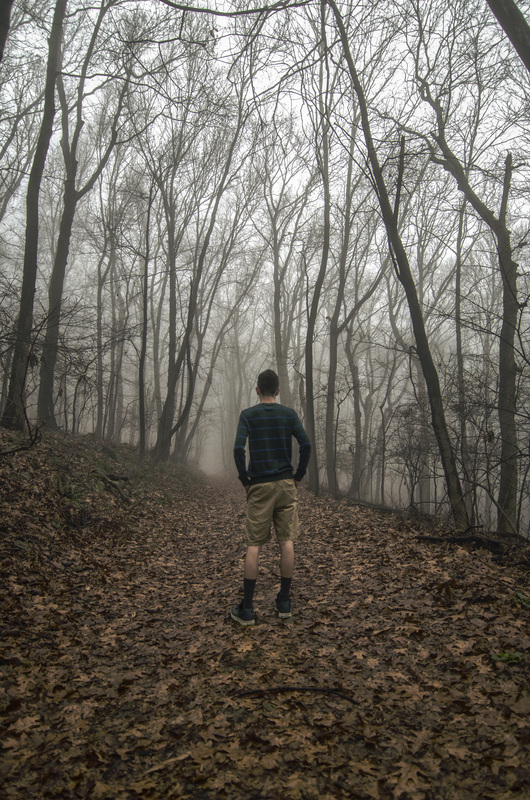 "I had two concussions in 2015, one from playing basketball and another from play fighting with a guy bigger than me." "When you look into 2016, what do you see in store for yourself?" "I don't know... Maybe another concussion? Actually, I hope to get better grades and no concussions. School's tough, with paying attention and social life and stuff. It's a juggling act."
0 Comments
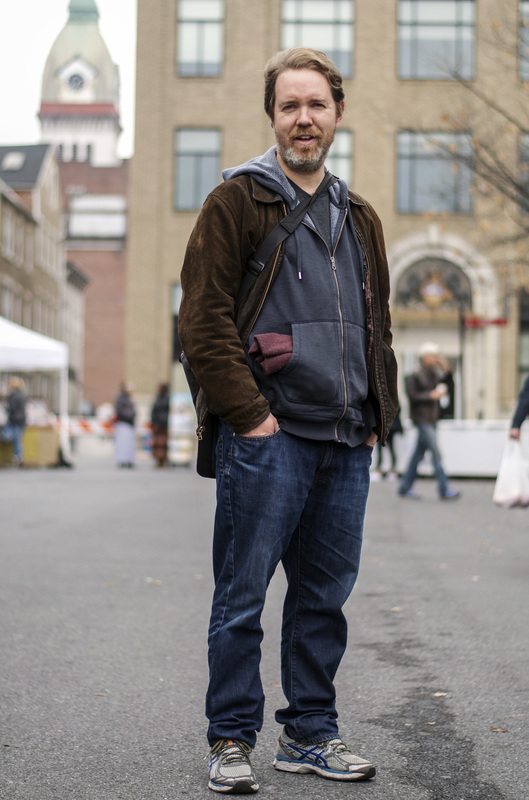 "I met (American author) Paul Bowles in Tangiers and got to talk to him for about three hours. I was teaching over in Italy and I had his address from a friend, so I went to Morocco for a week to try to find him. Found his apartment, went up to his door, knocked on his door, asked if I could talk to him, and he said, 'Sure.' It was amazing. I've admired his writing for a long time, and he was a composer, also, originally, so talking to him a little bit about music was really amazing. And also writing. He turned me on to (author) Cormac McCarthy." "What else did you learn from him?" "I don't think I learned anything, it was just the exposure to him as an American from an older generation, like the F. Scott Fitzgerald generation, living in a foreign culture, and really making it work for his art was super interesting. And just his attitude was unique--yeah; it was a really special thing." 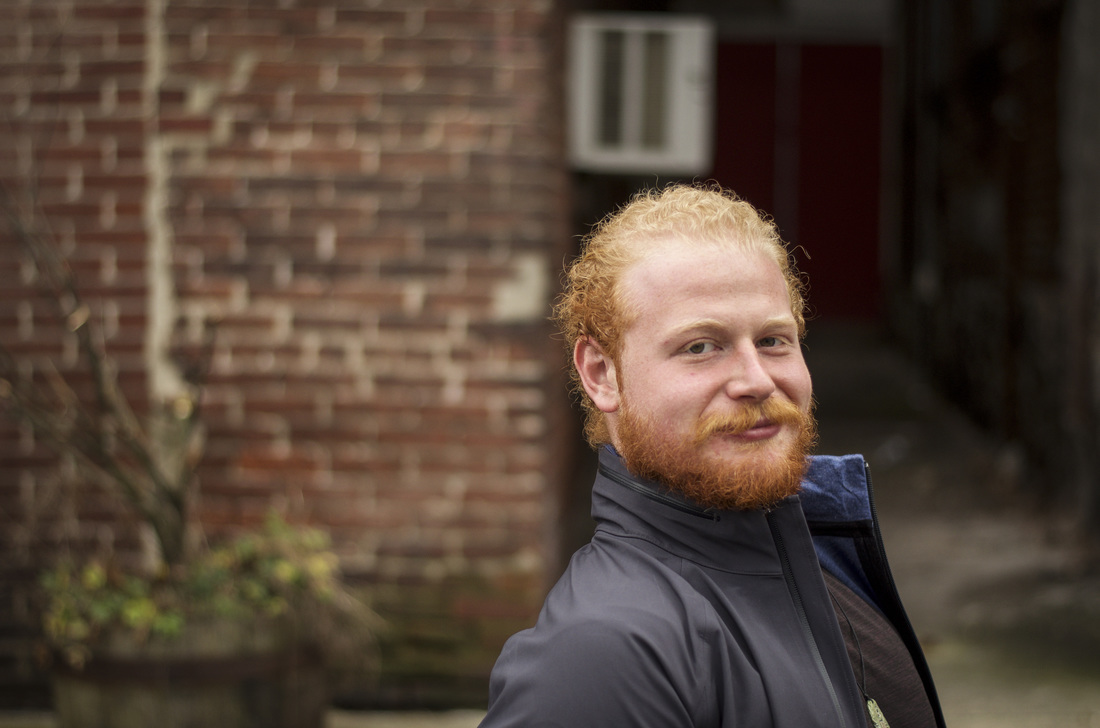 "What's one of the coolest things that's ever happened to you?" "Shit... Ummm... The opportunity to live in Italy on the beach for three months, eating really good food, riding a bicycle, and swimming in the ocean." "How did that opportunity come about?" "I met some family that I had never known before, and they offered, and I said, 'Yes!'" 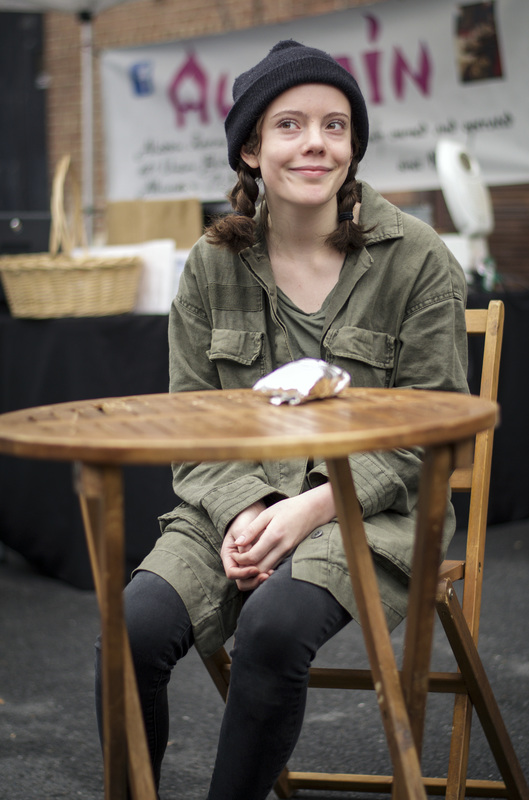 "One of the best times I ever had was when I went on a cross country trip with my grandmothers. We went up through Canada and around to California and then all the way back to Easton." "What was your favorite part of the trip?" "When I was up in Canada, we went white water rafting and I got to go off the boat and into the river." 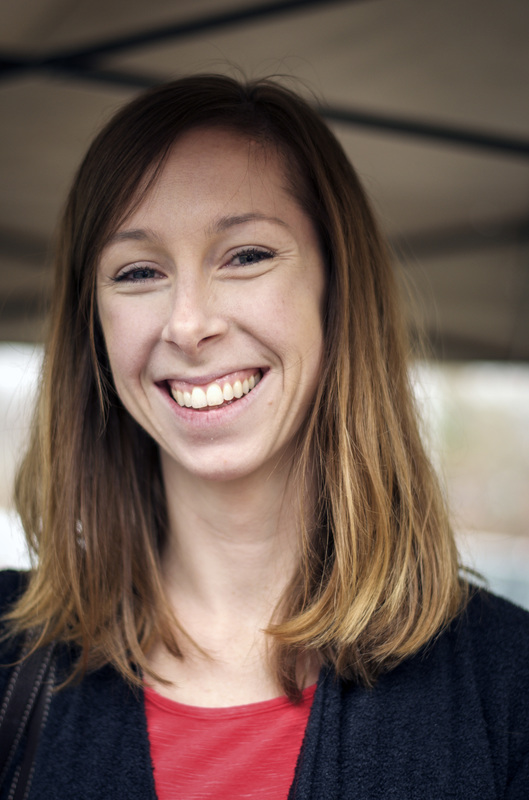 "I work in public affairs in Egypt, at the U.S. Embassy in Cairo. It entails trying to build better relations between the U.S. and Egypt, and doing that not government-to-government but more people-to-people. I manage our Facebook page and Twitter accounts and I work with journalists to try and answer their questions they have about the U.S. and respond to inaccuracies that are in their reporting, or just be a resource for the local media. And also read all the local Egyptian newspapers and watch the television programs and radio, and tell people in Washington and at the Embassy what people are talking about in Egypt and what they care about." "So how do you know if you're getting results?" "It's a challenge. We do a lot of different ways that we try to analyze public sentiment; there's a lot of negativity toward the U.S., of course, so we look for small victories. So, particularly on our Facebook page, like any social media, there's a ton of negativity and we try and talk about the good work that we're doing, like Egyptians who are finding opportunity in the U.S., as well as just tell the American story, talk about American values, and correct a lot of misinformation, because our administration is very welcoming to refugees and has a policy that's very counter to what people are reading about in the press right now. We try to make sure that we clarify, 'Here's what the U.S. is actually doing; here's what we care about. It's a messy political system and people have all kinds of opinions, but this is what we value.'" To look at the Facebook page, search U.S. Embassy in Cairo. 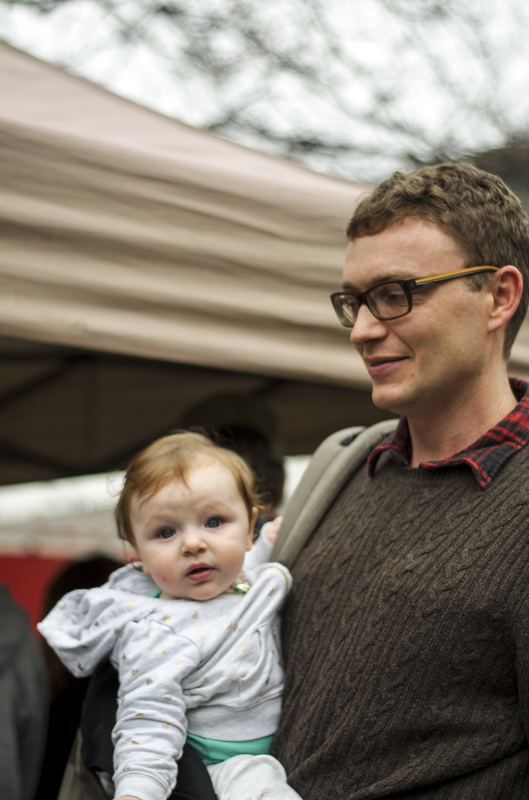 "What has being a dad taught you?" Him (flustered): "Joy. Taught me joy." Wife (off camera): "You didn't have that before?" Him: "No, I had joy before. Ummm...how amazing my wife is. Just the act of creating a baby in a body's pretty amazing. And made me value my parents more, because I didn't realize how much work it is to be a parent." 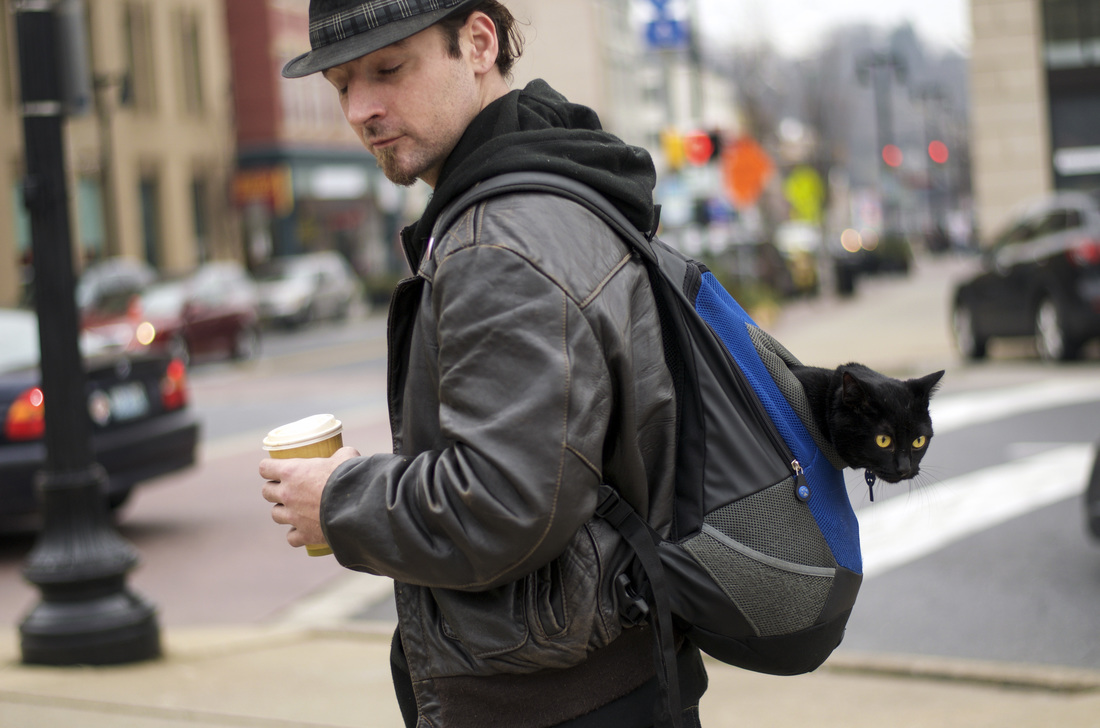 "A year ago, it was a Sunday morning, it was pouring rain, mid-fall, and I walked out of my house and found half-a-pound of jet-black, dead kitten in my front yard, soaking wet. I picked it up, and when I picked him up, I realized that he was just barely alive, so I stuck him in my pocket to keep him warm. Now his name is Pockets, and in any kind of bag is his safety zone. He goes longboarding with me, walks, bicycling, goes everywhere with me." 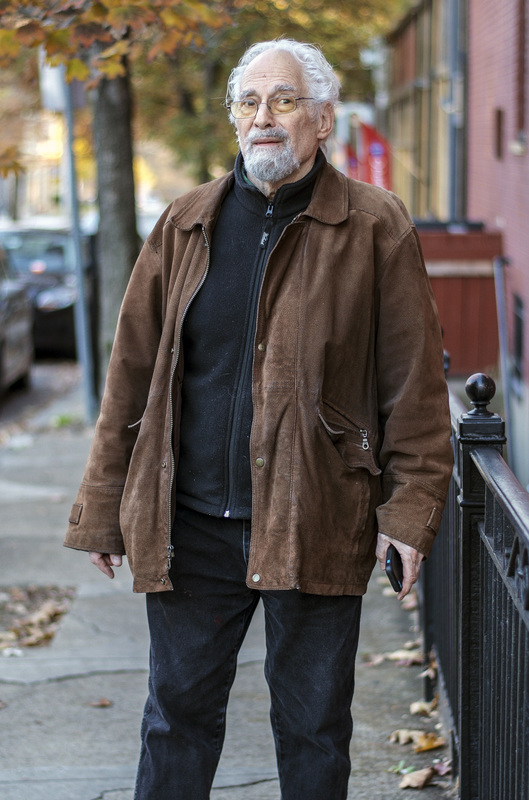 "Living in North Africa with the Arabs for two summers was really cool. It was in a place called Tetouan. There were no Europeans or Americans there, only the Arabs and myself. It was very beautiful, fantastic music, incredible people. I'm a student of the Sufi and Kabbalah. I'm writing a book about it." "What originally brought you out there?" "Theology. I'm a student of theology. The Sufis and Kabbalah say you can interpret scripture a thousand different ways. They were like the Deists, the Founding Fathers, had the same ideas. So I'm writing a book about Jefferson, Washington, Franklin, and Tom Paine, showing that the philosophy that they come by is Kabbalah and Ma'at law. Ma'at was an African civilization, Nubian, and they were the first Nubian Pharaohs in Egypt, and they have a book called Ma'at Law." |
These are the stories of the people of Easton, PA Archives
August 2018
|

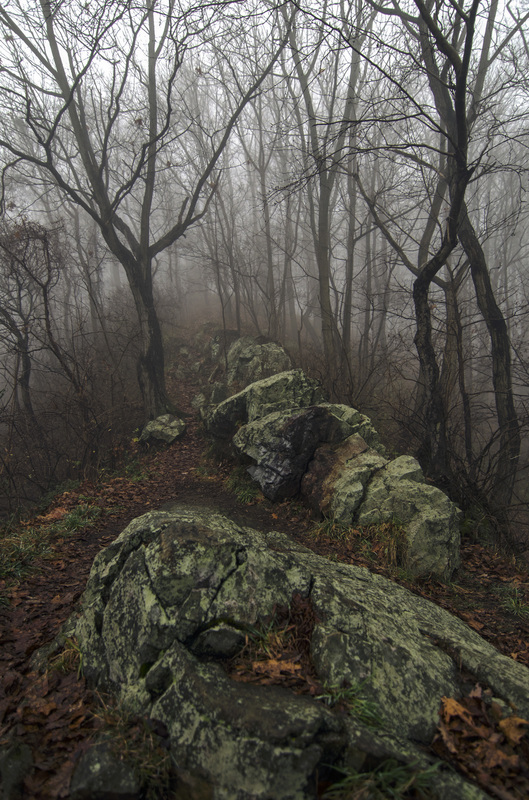
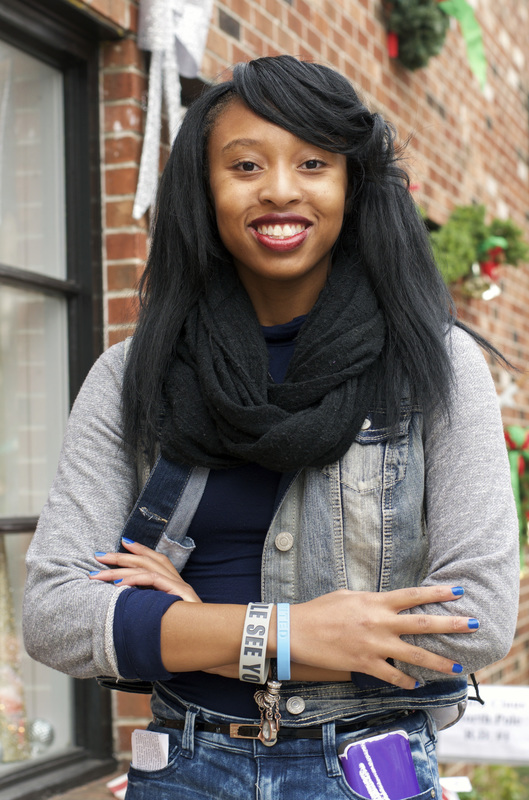
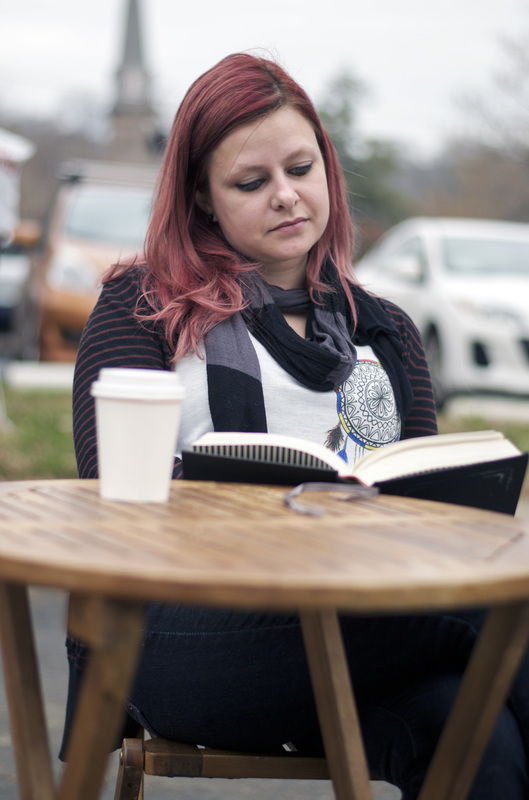
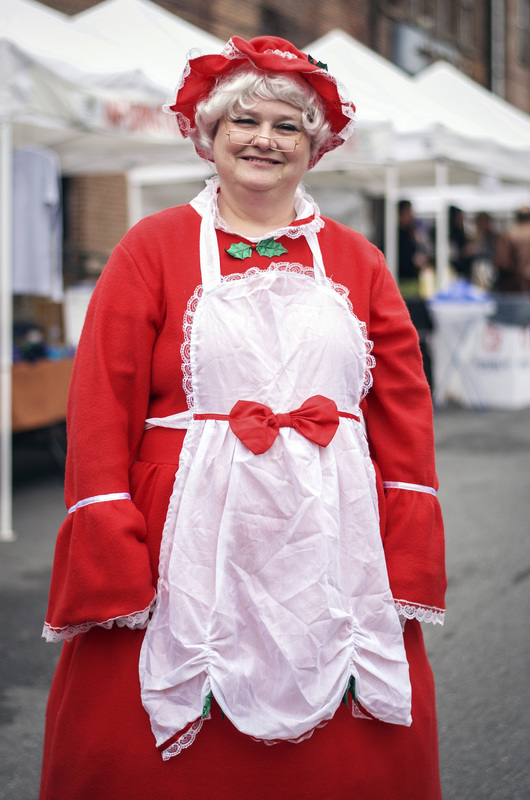
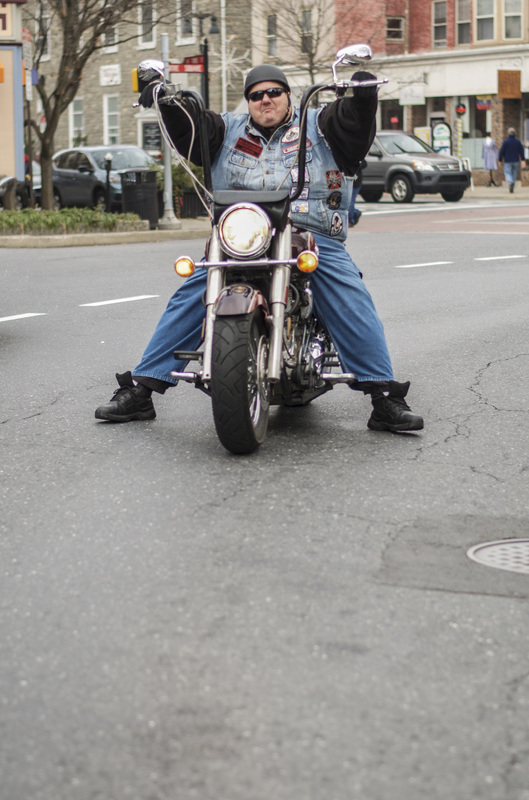
 RSS Feed
RSS Feed
